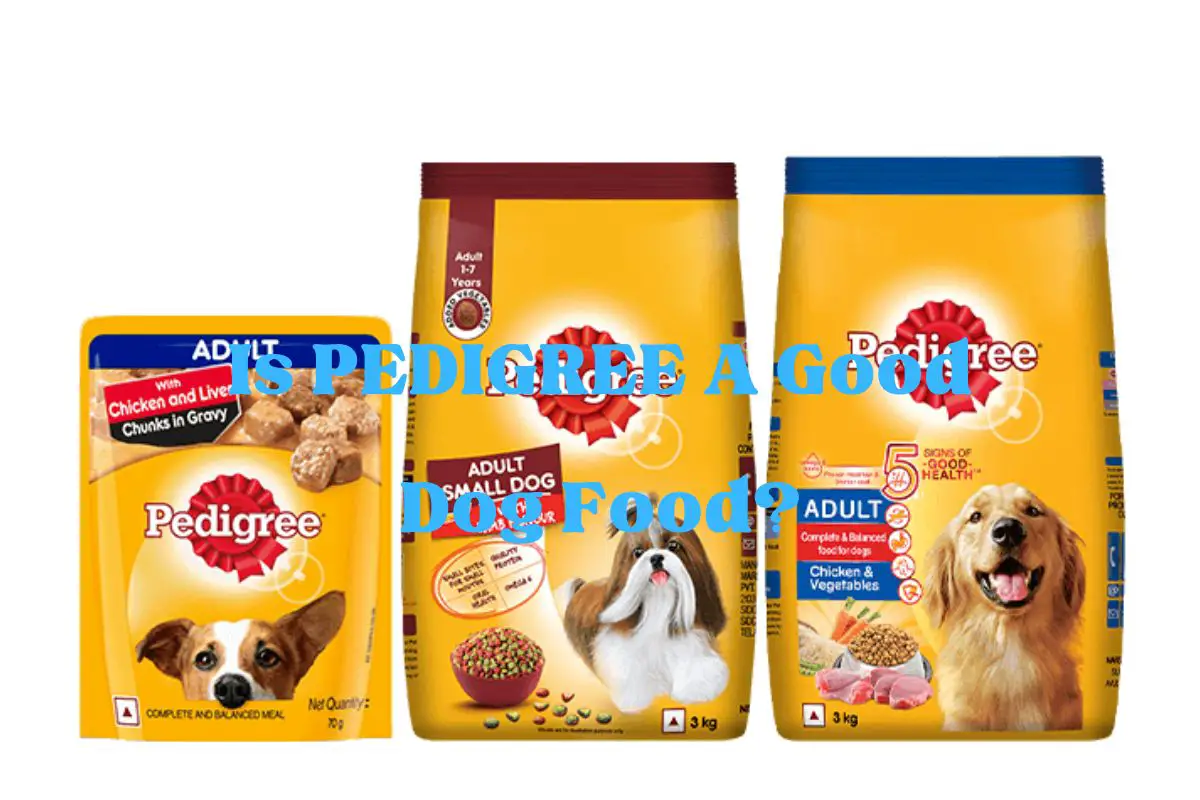Pedigree dog food has been a household name for countless years, but it has its share of both proponents and critics. Let’s take a closer look to figure out whether Pedigree truly makes the cut for your dog’s dietary needs.
Pedigree Dog Food: The Good, The Bad, and The Controversial
A significant concern for many dog owners regarding Pedigree dog food is its ingredient list and the use of artificial additives. Reports from some pet parents have highlighted cases of allergies and digestive problems in their dogs post-Pedigree consumption.
It’s crucial to remember that dogs, much like people, have their individual dietary reactions. What agrees with one dog may not sit well with another, making it essential to keep a watchful eye on any adverse health changes that might align with new dietary introductions.
Pedigree positions itself as an affordable, widely available option for dog owners, which is undoubtedly appealing. However, the affordability question often brings up the debate about the quality of ingredients used. Pedigree’s reliance on common allergens like corn, soy, and the presence of artificial colors and preservatives has stirred mixed feelings among the pet community.
Read Also:
Best Puppy Food for Small Breeds
Potential Hurdles with Pedigree Small Dog Food
Several issues have been noted in small dogs that have been fed Pedigree, including:
- Digestive Troubles: Episodes of diarrhea and vomiting might point to a food allergy or improper balance in food and water.
- Increased Gassiness: Some dogs may experience more gas due to digestive upset.
- Allergic Reactions: Ingredients like corn, wheat, and soy, common in Pedigree foods, can trigger allergies.
- Unwanted Weight Gain: High-calorie content in Pedigree’s offerings could lead to obesity.
- Dental and Digestive Problems: Bad breath, constipation, and bloating often stem from digestive inefficiencies and lack of dietary fiber.
- Skin and Overall Health Issues: Intolerance to certain ingredients may cause skin issues and a general lack of vitality.
- General Discomfort: Some dogs might experience headaches and other vague symptoms as a reaction to specific food constituents.
If you notice any consistent issues following a diet change, consulting with a veterinarian is imperative for the health and wellbeing of your pet.
Exploring Other Options
Diversifying your dog’s diet could be beneficial, and there are numerous alternatives to explore. Brands like Holistic Recipe, Acana, Orijen, and Taste of the Wild are celebrated for their use of natural ingredients and avoidance of artificial additives. These brands might offer a more suitable match for your dog’s unique dietary requirements, something your vet can help you determine.
While Pedigree does provide an accessible and cost-effective solution for many pet owners, the critical factor should always be your dog’s specific health needs and dietary sensitivities. Engaging in a conversation with your veterinarian can help plot a course to a nourishing, balanced diet that keeps your dog happy and healthy.

